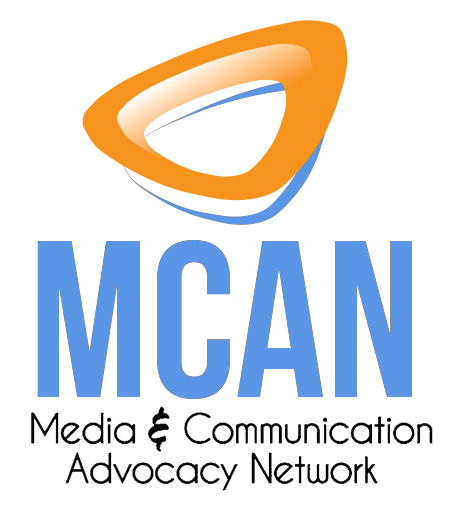The United Nations Population Fund (UNFPA), in collaboration with the Ghana Health Service (GHS) have initiated a move to re-invigorate the Obstetric Fistula (OF) programme in Ghana. It is estimated that between 711 and 1352 new cases of obstetric fistula, a debilitating condition resulting mainly from childbirth, develop each year. According to Mrs. Gladys Brew, Safe Motherhood Programme Officer of the Family Health Division of the Ghana Health Service (GHS), out of this estimated number about 100 repairs are done annually.
In a presentation at a meeting of key stakeholders in the Obstetric Fistula (OF) partnership organised by the UNFPA, Mrs. Brew stressed the need to reach all those who are suffering from the condition with treatment to restore their dignity and also to re-integrate them into society.
Partners Meeting
The meeting was to follow up on commitments and pledges that emanated from discussions around the celebrations of the International Day to End Obstetric Fistula that was held on May 23, 2023. It also discussed how to strengthen the existing partnerships and commitment of stakeholders and end obstetric fistula in Ghana. Mrs. Brew, who spoke on the status of the obstetric fistula programme in Ghana, said that a National Obstetric Fistula Task Team was inaugurated in 2014 to oversee the planning and implementation of a national strategy to end obstetric fistula.

Obstetric fistula surgeries
The GHS, she said, started working in collaboration with UNFPA on obstetric fistula in 2005, adding that in 2008, the UN Agency funded surgical repairs of 300 cases. “Between 2011 and 2014 GHS and other partners in Ghana, surgically repaired 616 cases. From 2015 to 2022 a total of 1,740 cases of women with obstetric fistula had surgical repairs done by the Obstetric Fistula Task Force Team and all stakeholders,” Mrs. Brew said.
She indicated that currently the Yendi District Hospital and Mercy Women’s Hospital, Mankessim offer active repair services while the Baptist Medical Centre, Nalerigu, the Komfo Anokye Teaching Hospital, the Korle Bu Teaching Hospital and the Tamale Teaching Hospital provide sporadic care. “The Upper East and Upper West Regional Hospitals also have outreach centres but these facilities lack the full complement of expertise and therefore, require the importation of surgical teams to conduct the surgical repairs of fistula cases,” she added.
Integration
The Director of the Family Health Division of the GHS, Dr. Kofi Issah expressed regret that many obstetric fistula sufferers have not been able to receive care due to lack of funds. He proposed that repairs for fistula be integrated into routine surgeries in hospitals to clear the backlog of the many women waiting to be repaired.
Dr. Issah further advised that obstetric fistula should not be managed as a vertical programme, “we need to leverage existing health systems, such as adolescent reproductive health, family planning and Safe Motherhood to push for obstetric fistula repairs”, he stated. Dr. Gabriel Ganyaglo, a urogynecologist and co-chair of the National Fistula Task Force, expressed concern about the accumulated cases of obstetric fistula waiting to be repaired. He called for the intensification of awareness creation on the condition in the communities while a comprehensive obstetric fistula management programme was being planned.
Partnership
Dr. Wilfred Ochan, the UNFPA country representative who chaired the meeting emphasised that elimination of obstetric fistula was possible. However, this will require a strong partnership between the United Nations agencies, the financial sector, the private sector and the government. He noted that “with a little support, many of the country’s healthcare facilities will be able to repair obstetric fistula patients and easily increase the number of repairs from the current 100 to over 1000 a year. According to Dr Ochan, equipping the health facilities and enhancing the competencies and surgical skills of the health workers was crucial to the successful management of obstetric fistula.
Commitments and pledges
The Deputy Country Representative of the World Food Programme (WFP) Ms. Anna Mukiibi-Bunya affirmed that the WFP would continue to partner the UNFPA to reduce the barriers that women suffering from obstetric fistula face. “The WFP will support 50 women to access treatment and further help them integrate back into their communities,” she said.
The support, she added, will involve implementing activities that will improve the nutrition, livelihood and economic empowerment of the women to get them out of poverty. The representative of the Norwegian Embassy, Mr. Tobias L. Handelano also indicated the willingness of the Embassy to be part of the partnership. He explained however that the embassy does not have funds to support this year, but will join any effort to create awareness.
Representing the Access Bank, Ms Josephine Eva Arthur, Zonal Head, Retail Banking said the bank cared about the people it served and was therefore committed to support the effort to end fistula in Ghana. “In 2015, Access Bank started an initiative that focuses on women and will therefore be delighted to be part of the effort to save women from the pain of obstetric fistula.
Speaking on behalf of the Fidelity Bank Ms. Majorie Quansah said the bank would contribute to raising awareness about obstetric fistula, adding that, the bank will determine what other support it can offer to the national effort within its gender strategy. Ms. Quansah said Fidelity Bank would support by providing the women with entrepreneurship and training skills after their fistula had been repaired.

The representative of the telecommunications company, AT, Ms Nancy Assor Asiedu, said the company would include Obstetric Fistula into its health programmes for next year. The company’s focus, she said will be on prevention and management of the condition, as well as economic support to the patients after they undergo surgical repairs.
By Rosemary Ardayfio

